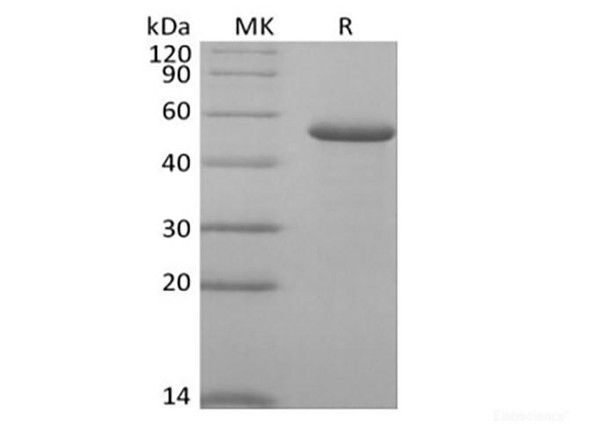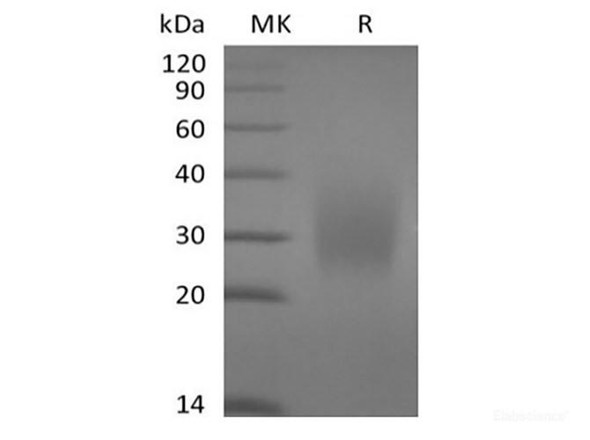Description
| Product Name: | Recombinant Human CD59 (C-6His) |
| Product Code: | RPES6375 |
| Size: | 10µg |
| Species: | Human |
| Expression Host: | HEK293 Cells |
| Synonyms: | 1F5 antigen, 1F5, 20 kDa homologous restriction factor, CD59 antigen, CD59 glycoprotein, CD59, HRF20, HRF-20, MACIF, MAC-IP, MIC11, MIC11MSK21, MIN1, MIN2, MIN3, MIRL, p18-20, 16.3A5, EL32, FLJ38134, FLJ92039, G344 |
| Mol Mass: | 9.8 kDa |
| AP Mol Mass: | 15-20 kDa |
| Tag: | C-6His |
| Purity: | > 95 % as determined by reducing SDS-PAGE. |
| Endotoxin Level: | < 1.0 EU per μg of the protein as determined by the LAL method. |
| Bio Activity: | Testing in progress |
| Sequence: | Leu26-Asn102 |
| Accession: | P13987 |
| Storage: | Generally, lyophilized proteins are stable for up to 12 months when stored at -20 to -80°C. Reconstituted protein solution can be stored at 4-8°C for 2-7 days. Aliquots of reconstituted samples are stable at < -20°C for 3 months. |
| Shipping: | This product is provided as lyophilized powder which is shipped with ice packs. |
| Formulation: | Lyophilized from a 0.2 μm filtered solution of PBS, pH 7.4. Normally 5 % - 8 % trehalose, mannitol and 0.01% Tween80 are added as protectants before lyophilization. Please refer to the specific buffer information in the printed manual. |
| Reconstitution: | Please refer to the printed manual for detailed information. |
| Background: | CD59, also known as membrane attack complex inhibition factor (MACIF), Protectin, 1F5 antigen, HRF-20 and MIRL, is an approximately 20 kDa GPI anchored glycoprotein that is an important regulator of the complement system in blood. CD59 is a potent inhibitor of the complement membrane attack complex (MAC) action. CD59 was first identified as a regulator of the terminal pathway of complement. It acts by binding to the C8 and/or C9 complements of the assembling MAC, thereby preventing incorporation of the multiple copies of C9 required for complete formation of the osmolytic pore. This inhibitor appears to be species-specific. CD59 is involved in signal transduction for T-cell activation complexed to a protein tyrosine kinase. |






